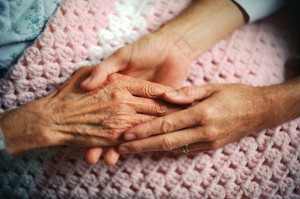-
Advocacy Theme
-
Tags
- Abortion
- Adoption
- Caregiving
- CEDAW
- Disability
- Domestic Violence
- Domestic Workers
- Harassment
- Healthcare
- Housing
- International/Regional Work
- Maintenance
- Media
- Migrant Spouses
- Migrant Workers
- Muslim Law
- National budget
- Parental Leave
- Parenthood
- Polygamy
- Population
- Race and religion
- Sexual Violence
- Sexuality Education
- Single Parents
- Social Support
- Sterilisation
- Women's Charter
Singapore’s stressed singles
May 15th, 2012 | Family and Divorce, News, Older People and Caregiving, Poverty and Inequality, Views
As we celebrate the International Day of Families on May 15, it is time to recognise the increasingly important role singles in Singapore play when it comes to caring for a rapidly greying population.
The annual International Day of Families on May 15 was established by the United Nations in 1993 to mark how changing social, economic and demographic processes impact families around the globe.
On this 19th anniversary, it is encouraging to note that recent Budget-related statements by Members of Parliament recognise that better support is needed for different forms of the Singaporean family, which include single parents, divorced parents, foreign spouses of Singapore citizens and fathers who want more care-giving opportunities.
Why do families exist? For care-giving, not just procreation. Indeed, procreation without adequate care-giving leads to many social problems.
Diverse forms of the family provide care. Apart from nuclear families, there are single-person-headed households, patchwork families (resulting from divorce and remarriage) and, increasingly, multi-generational families in which singles (unmarried and childless) look after elderly parents.
Population statistics show a steady rise in the rate of singlehood. In 2000, 33.3% of males and 21.9% of females aged 30-34 years were single. This increased to 43.1% of males and 30.6% for females in 2010. Meanwhile, “the proportion of residents aged 65 and above increased from 7.2% in 2000 to 9.3% in 2011” (Population in Brief 2011: 6).
These statistics are related. Increasingly, the elderly are cared for by unmarried children, mostly daughters. The 1995 National Survey of Senior Citizens in Singapore showed that singles constituted 24% of family care-givers caring for those aged 65 and above. This has increased to 26%, according to a Ministry of Health report (2011). Women constitute 74% of those caring for the elderly, according to an NUS Social Work Report of Singapore Family Caregiving (2006).
Describing single care-givers of the elderly, Dr Kalyani Mehta (Head of Gerontology Programme, UniSIM) said, “many of them are not ‘swinging’ singles but ‘stressed’ singles, who are juggling work and care-giving responsibilities.”
In shaping policies for Singapore’s rapidly greying population, we must ensure that single adults caring for elderly parents do not slip through the cracks. Recent Budget support for single care-givers – including subsidies for home-based care and domestic foreign helpers for elderly parents, and assistance through Medisave top-ups and GST vouchers – are laudable. But are these enough?
The 2006 NUS Report of Singapore Family Caregiving states that 25% of family care-givers express concern about their worsening financial situation. 55% of healthcare expenditure in Singapore is funded out of pocket, compared to only 30% in Taiwan, Japan, Hong Kong and South Korea, according to a 2012 paper on inequality and the new social compact, presented at the Institute of Policy Studies.
Are parents to rely largely on the income of working children for long-term care-giving? More effective approaches could include:
– Universal Medishield and risk-pooling across all age groups to provide more affordable healthcare coverage for older persons
– Waiving levies for hiring foreign domestic workers to assist low-income care-givers, especially singles who have to work to support elderly parents
– Childcare leave becoming “care-giving leave” for all dependents, thereby enabling single care-givers – some without siblings – to care for or bring ill elderly dependents to see doctors.
Further, more retiring Singaporeans – including those who have made tremendous personal sacrifices to care for elderly parents – now live alone: from 6.6% in 2000 to 7.7% in 2005, according to a MCYS Report on the State of the Elderly in Singapore (2009).
Interviewing single women aged 35 and above, AWARE met respondents who experience difficulties in caring for dependent parents without sufficient state support. One respondent plans to migrate to a more “pro-elderly” country after the parents she cares for pass on. In her view, Singapore does not provide adequately for an ageing population and an increasingly single population. Indeed, eldercare facilities here are limited in quantity and quality, and very expensive to boot.
Among the elderly living in HDB estates, those living with friends or relatives (not immediate family) have almost doubled from 3.3% in 1998 to 6.4% in 2008. These, too, are families, bound by ties of care and compassion, rather than obligations of kinship. It is time to recognise that caring for one another is the basis of families. Family policies should not be premised solely on relationships of blood or marriage.
On this International Day of Families, it is worth reflecting on how such policies can better support singles – those who are care-givers, as well as those who receive care – and their families. Only then can we become a truly inclusive and caring society.
This commentary was co-authored by members of AWARE’s Singles In Singapore sub-committee, which comprises leaders Chew I-Jin and Mao Ailin, and members Raudah Abdul Rashid, Carolyn Lim Bee Bee, and Chu Hoi Yee. It was published in Today on May 15, 2012. Read the published version here.




